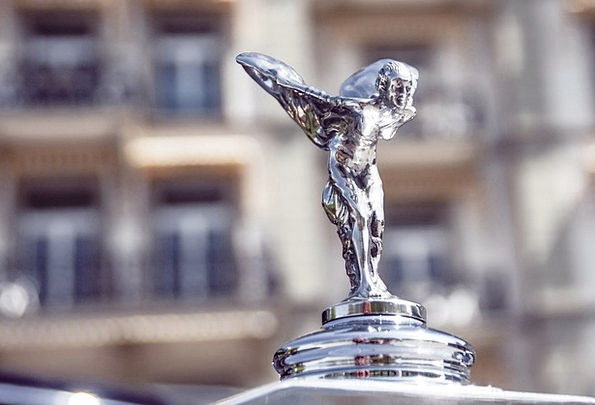A study "Top Incomes and Human Well-being Around the World" was published at the end of 2015, December 28. It states that as the share of uber-riches income, who constitute 1% of the world's population, increases, welfare of the remaining 99% is sharply reduced.
"Our study shows that even despite that some of us live relatively well, a sharp disparity in incomes end up making everyone miserable," - said Associate Professor of Economics at Oxford University, Jan-Emmanuel De Neve.
The study used Gallup World Poll and the World Top Incomes Database’s data, which made it possible to determine the taxable share of income of the world’s uber-riches compared to declared level of satisfaction with living conditions and, as a consequence, positive or negative emotional mood.
In countries where 1% of the population controls bulk of the wealth, the citizens feel more negatively compared to those where income is distributed evenly.
These studies were carried out just at a time when income inequality is growing in many countries.
"Over the past decade, many countries with developed economies have had a real gulf between the rich and the poor", - stated the IMF study, published last year.
In the US, share of total revenues of 1% of the population was less than 10% in the late 1970s. By 2012, it had reached levels not seen since the Great Depression, with more than 20% of the income belonging to the richest 1% of people in the country, according to a study by Professor of Economics at the University of California at Berkeley Emmanuel Saez.
"In fact, 20 richest people in the United States, a group that can fit in one Gulfstream G650 plane, possess wealth greater than 152 million people, who account for 50% of American families," - noted the study.
The reason that we are getting happy with increase in income inequality is that if wealthy people get richer, they "expand the range of income distribution."
This means that even fairly wealthy people can no longer afford a number of things, such as, for example, a private school for children, a house in the best area, according to a study published this Tuesday in the Harvard Business Review.
"Increase in the share of income of the richest 1% of the population will make you feel as if your progression through the ranks and increase of your well-being become something unattainable," - says the report.
This study does not make causal connections. It simply demonstrates a clear correlation between growth of income inequality and low life satisfaction, as well as increasing negative mood in society. Furthermore, the study takes into account data not from all countries. It is based only on the facts available.
source: morningstar.com
"Our study shows that even despite that some of us live relatively well, a sharp disparity in incomes end up making everyone miserable," - said Associate Professor of Economics at Oxford University, Jan-Emmanuel De Neve.
The study used Gallup World Poll and the World Top Incomes Database’s data, which made it possible to determine the taxable share of income of the world’s uber-riches compared to declared level of satisfaction with living conditions and, as a consequence, positive or negative emotional mood.
In countries where 1% of the population controls bulk of the wealth, the citizens feel more negatively compared to those where income is distributed evenly.
These studies were carried out just at a time when income inequality is growing in many countries.
"Over the past decade, many countries with developed economies have had a real gulf between the rich and the poor", - stated the IMF study, published last year.
In the US, share of total revenues of 1% of the population was less than 10% in the late 1970s. By 2012, it had reached levels not seen since the Great Depression, with more than 20% of the income belonging to the richest 1% of people in the country, according to a study by Professor of Economics at the University of California at Berkeley Emmanuel Saez.
"In fact, 20 richest people in the United States, a group that can fit in one Gulfstream G650 plane, possess wealth greater than 152 million people, who account for 50% of American families," - noted the study.
The reason that we are getting happy with increase in income inequality is that if wealthy people get richer, they "expand the range of income distribution."
This means that even fairly wealthy people can no longer afford a number of things, such as, for example, a private school for children, a house in the best area, according to a study published this Tuesday in the Harvard Business Review.
"Increase in the share of income of the richest 1% of the population will make you feel as if your progression through the ranks and increase of your well-being become something unattainable," - says the report.
This study does not make causal connections. It simply demonstrates a clear correlation between growth of income inequality and low life satisfaction, as well as increasing negative mood in society. Furthermore, the study takes into account data not from all countries. It is based only on the facts available.
source: morningstar.com



















